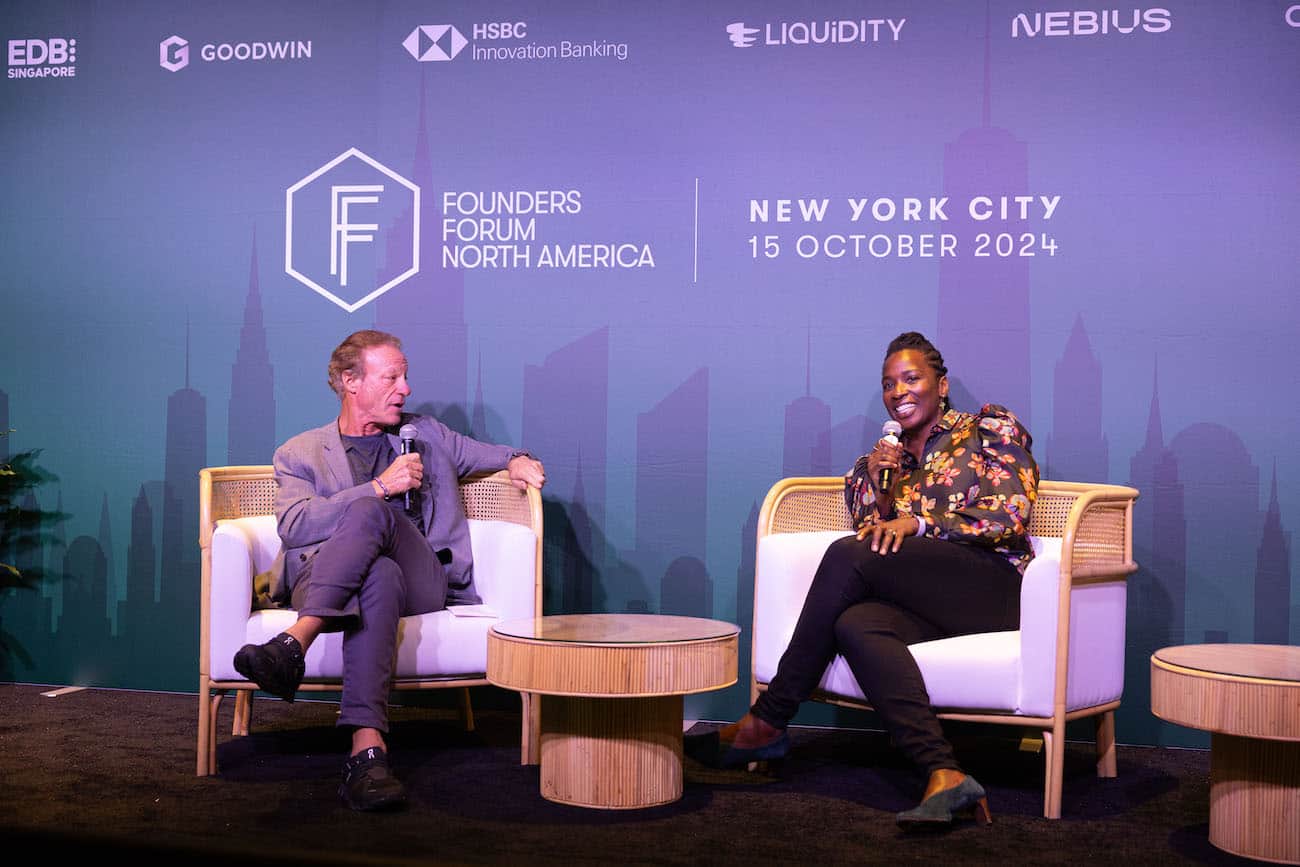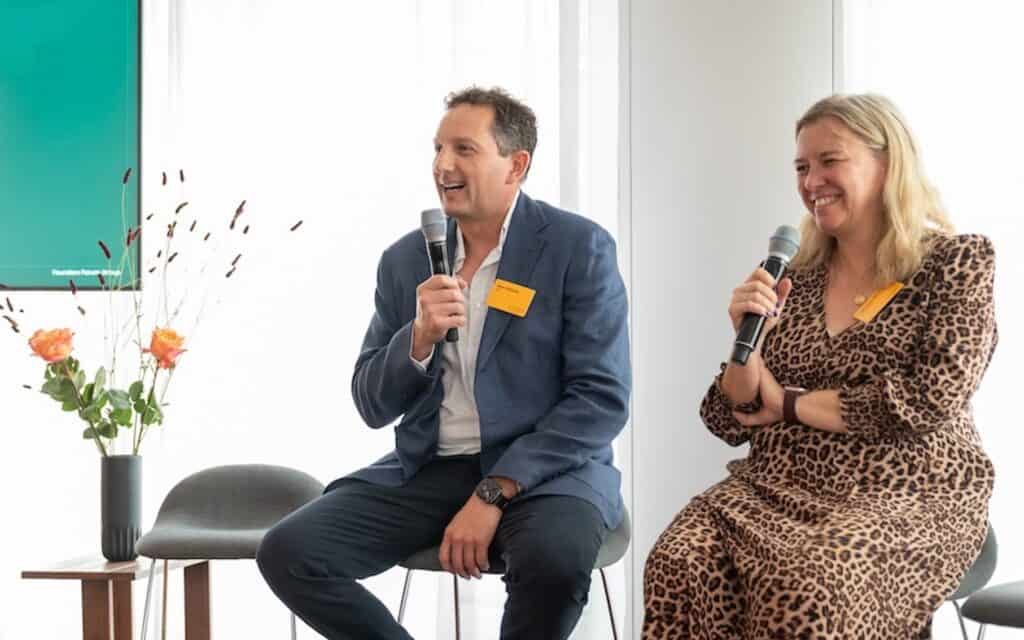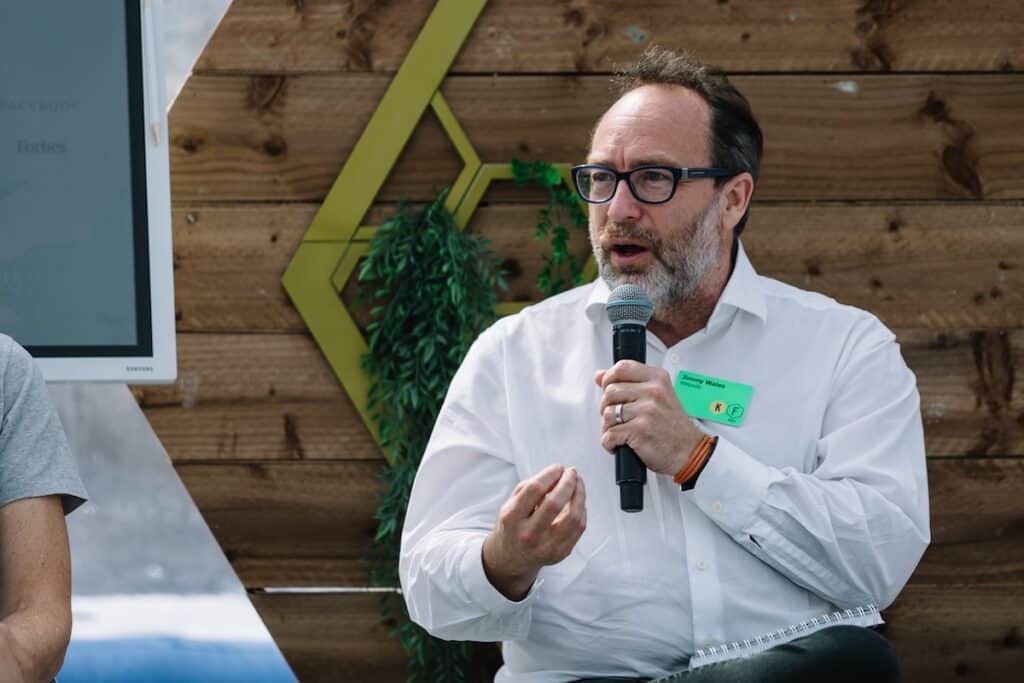Last updated on October 24, 2024
Our 12th edition of FF North America brought together 300+ of the world’s top tech founders, investors, CEOs, and policymakers. Read our key takeaways covering AI, robotics, media transformation, and more!
As AI disrupts industries at an unprecedented pace, and as we stand on the cusp of the US presidential election, it’s never been more important to bring the brightest minds together from both sides of the pond and address the most pressing issues that sit at the intersection of technology, society, and policy.
Our 12th annual edition of FF North America brought together trailblazing entrepreneurs – including 50 unicorn founders – CEOs, investors, and policymakers, spanning over 50 industry sectors and 20 countries, to discuss the future of tech, AI, and its safe and effective implementation.
We heard Jack Hidary (SandboxAQ) and Thomas Siebel (C3 AI) discuss how AI is set to revolutionise industries across the board, before Deepak Pathak (Skild AI), Evan Beard (Standard Bots), and Raviraj Jain (Lightspeed) explored the next evolution of AI-powered robotics. Hubert Joly (Best Buy) and Jennifer Hyman (Rent the Runway) discussed leadership through turbulent times, focusing on the importance of adaptability and resilience in navigating today’s tech landscape.
Robert Thomson (News Corp), Jim Lanzone (Yahoo) & Lynn Doan (Bloomberg) talked us through strategies for continuous reinvention with insights on the need to adapt to stay ahead, while Joey Levin (IAC) and Caroline Hyde (Bloomberg) took us further into the world of media and AI disruption.
Blake Scholl (Boom Supersonic) shared his journey to turbo-charging supersonic travel and world-renowned photographer, David Yarrow, explained how the world of art is being transformed by disruptive tech and AI. The day concluded with Toyin Ajayi (Cityblock Health) discussing her inspirational career story with David Fialkow (General Catalyst), sharing her experiences switching from doctor to founder, and building a $6b business striving to address healthcare disparities in the US.
Here’s our key takeaways from FF North America 2024:
1. The power of AI extends beyond Large Language Models
Quantitative AI models trained on scientific data could have a 50-100x greater impact than language models like ChatGPT. These models, whilst still in development and largely experimental, are poised as the next wave of computational advancement and have the capacity to revolutionise global industries.
The first real-world applications in enterprise settings are starting to be deployed. For example, Jack Hidary’s SandboxAQ generates proprietary data using Large Quantitative Models (LQMs) by using the principles of quantum computing to discover new insights in areas such as life sciences, financial services, navigation, cybersecurity, and energy.
Similarly, Thomas Siebel’s C3 AI leverages Enterprise AI applications that help meet the large-scale demands of global businesses in manufacturing, financial services, government, utilities, energy, chemicals, agribusiness, defence, and intelligence.

2. AI-powered robotics is redefining human-machine interaction
Deepak Pathak’s Skild AI estimates there will be at least 1 billion robots deployed globally by 2030. The global market for robotics is projected to increase from over $74m in 2024 to almost $287b by 2032, with a compound annual growth rate of 18.4%.
As the technology develops, the use of transformer models and multimodal AI is enabling a new paradigm in robotics. Companies like Deepak Pathak’s Skild AI and Evan Beard’s Standard Bots are developing general-purpose ‘brains’ for robots, trained on massive amounts of simulation and human demonstration data. This allows robots to perform a variety of autonomous tasks in unstructured environments, rather than just replaying pre-programmed motions. Still, key challenges still remain around safety, reliability, and the need for more efficient hardware platforms.
3. Traditional business models within the media and creative industries are being turned on their heads
More photos will be taken tomorrow than in the entire history of film photography. Today, AI is advanced enough to create content that looks and feels humanmade, to the extent of generating deep fakes that are indistinguishable from reality. This presents a world of opportunity, but also raises ethical concerns and risks undermining creators’ IP rights and disrupting traditional business models.
We need to find a way to empower creators to own and monetise their IP in an AI-driven world. This involves a legal framework to enable creators to licence and control the use of their IP, likeness, and personal data within AI systems, balancing innovation with the protection of creative rights. Crucially, as AI technology continues to advance, it creates several conceptual, empirical, and real-life reasons to revisit the definitions of creativity.
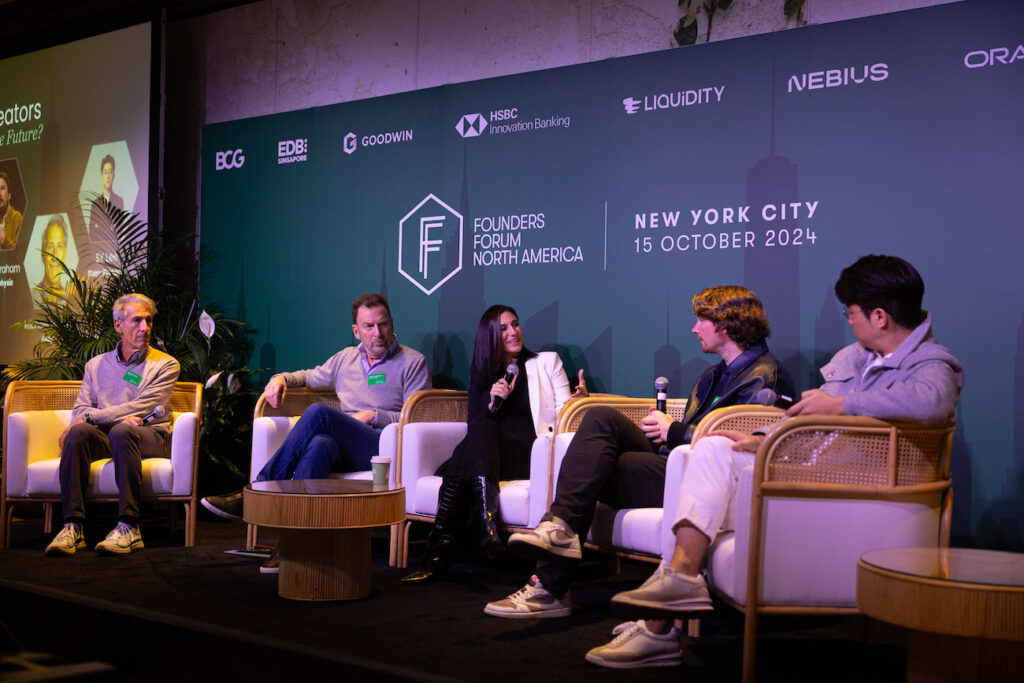
4. Fintech is democratising access to diverse asset classes
76% of the global adult population have a bank account, a percentage which has doubled over the last decade. Fintech startups are driving this change by facilitating greater financial inclusion through technological innovation. This includes a focus on democratising access to more diverse asset classes including stocks, crypto, and bonds.
Jannick Malling’s Public.com allows users to invest in decentralised finance systems through blockchain networks such as stocks, bonds, crypto, ETFs, and more, using AI-powered data and custom analysis. Kathleen Breitman’s Tezos has released an on-chain debit card that uses blockchain technology to allow users to have control over their crypto assets, further bridging the gap between traditional finance and web3.
5. Modern defence strategies are changing, but battlefield readiness remains a challenge
Challenges such as Russian electronic warfare and GPS and communication jamming are rendering traditional navigation systems ineffective, highlighting the need for AI-powered solutions in military systems. However, there’s a significant gap between developing and deploying these systems in real battlefield conditions, raising concerns about the effectiveness of many Western military systems in actual combat scenarios.
The first software platform that enables collaborative AI workflows across organisations in the military sector was launched this year, The AI Backbone. The platform replaces the existing, highly manual and fragmented processes with more standardised procedures with open, interoperable architectures.
6. Creative fundraising will unlock funding in tough markets
Despite the dominance of the US in the global VC funding landscape, Q1-Q3 of this year saw VC deal volume in the US fall by 35%. AI startups are the major focus for investors, capturing $27b (nearly half) of US VC funding in Q2. However, some startups outside the AI bubble are struggling for traditional follow-on investment from VCs.
To overcome this challenge, founders are using innovative deal structures to get funding. It is important to think laterally and leverage all assets, as well as maintain personal conviction to set yourself apart from competitors. Some founders are aligning investor incentives with management performance, by offering investors guaranteed IRR.
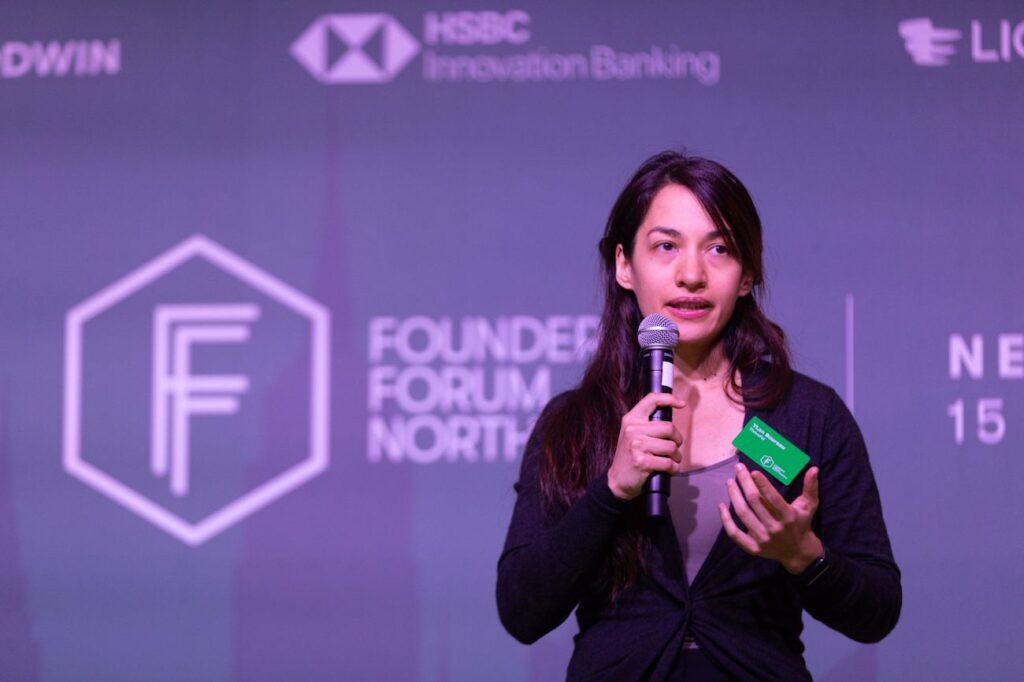
7. Scaling founders must evolve from visionaries to visionary operational leaders
While AI can provide operational efficiencies, core leadership and management skills are still essential for scaling a company successfully. As tech startups grow, founders must transition from ‘founder mode’ to building operational systems and processes. This involves hiring the right talent, developing management practices, and constantly re-evaluating compensation and equity structures to retain and incentivise employees. Don’t underestimate the hiring process as an important tool for scaling – it requires a calibration phase to understand the right fit for each role, always maintaining quality over speed.
8. Purpose-driven tech is merging profit with social impact
Founders are increasingly focusing on using technology to build companies that create both profit and social impact. By focusing on underserved populations, Toyin Ajayi’s Cityblock Health built a $6.2b company providing economic value without losing the human touch. Their model uses data insights and AI to identify care gaps, optimise clinician time, and deliver services more efficiently, raising around $900m in the process. By leveraging AI to rethink traditional industry structures and address necessary gaps, businesses are able to deliver both profit and impact.
9. Longevity research will push the boundaries of ageing
Advancements in biotechnology suggest we haven’t yet reached the peak of healthy human lifespan. However, there are regulatory challenges when it comes to developing longevity therapies, as ‘longevity’ isn’t currently recognised as a medical indication. To counter this problem, founders are targeting specific age-related diseases as ‘stepping stones’ to prove the potential of their longevity approaches.
The underlying causes of age-related diseases are the mechanisms of ageing itself. The US dedicates over $3t (90% of healthcare spending) to age-related diseases. Companies such as Joe Betts-LaCroix’sRetro Biosciences are developing therapies that meaningfully reverse age-related diseases, aiming to add 10 years to the healthy human lifespan. Similarly, Eric Verdin’s Buck Institute for Research on Aging and Piraye Beim’sCelmatix are building on preliminary findings of potential molecular mechanisms that contribute to ovarian ageing, which is thought to be a primary cause of age-related diseases like Alzheimer’s.
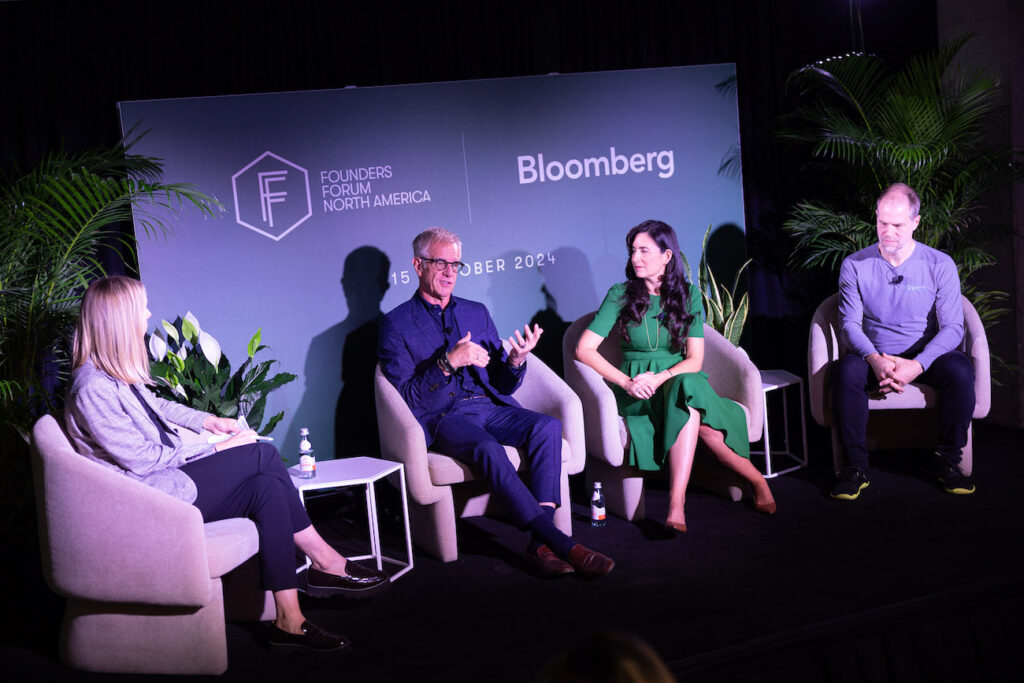
10. Our Rising Stars are innovating in fusion energy and using AI to forge real-world human connections
Our Rising Stars brought the FF magic to New York, pitching startup ideas with world-changing potential. Andrew D’Souza’s Boardy is the world’s first social AI, connecting humans in the real world, whilst Daniel Sak’s Landbase is on a mission to help businesses transform their go-to-market by harnessing machine intelligence and human performance.
Y-Lan Boureau’s ThrivePal has created a personal growth and wellness AI coach, Iñigo Rengifo Meliá’s Concentro allows clean energy projects to monetise the tax credits they receive from the US government, whilst JC Btaiche’s Fuse Energy is accelerating the world’s transition to fusion energy.
Read more about our Rising Stars.

That’s a wrap from FF North America until next year. Big thanks to our partners – Boston Consulting Group (BCG), Singapore Economic Development Board (EDB), Goodwin, HSBC Innovation Banking, LIQUiDITY Group, Nebius, Oracle, and WeWork – for making it all possible.
Click here to learn more about our flagship forums and events for founders.
 All Posts
All Posts